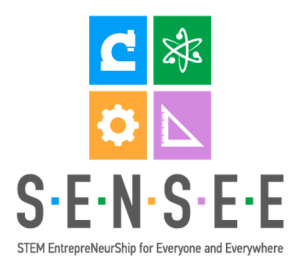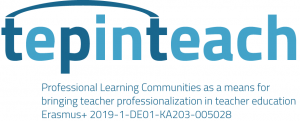Multidisciplinary Research Unit 3
MRU 3 aims at working with stakeholders of STEM education in Cyprus – public and private education, teacher communities and educational institutions and services – to contribute towards the building of the necessary foundations to encourage innovative approaches in research, teaching and learning in STEM Education.
Acronym: EMPOWER
Duration: 2025–2028
Funded by: Erasmus+ KA220-SCH – Cooperation Partnerships in School Education
Acronym: METEOR
Duration: 2025-2028
HORIZON-CL2-2024-TRANSFORMATIONS-01-07
The overall aim of METEOR is to improve the transversal skills of current PhD candidates and early career researchers through an innovative, collaborative, and participatory training program, including summer schools, group projects, and peer mentoring. Improving transversal skills will benefit both individual employability and the whole research ecosystem. For many years, the European Commission has promoted innovation in school science education, e.g. Inquiry-based Science Education and Open Schooling. METEOR is designed to have a much more direct effect on the pipeline for science and research careers by equipping PhD candidates and early career researchers with the skills to operate in a range of research-driven environments and a desire to use their specialized knowledge for the benefit of society.
Acronym: LeaFaP
Duration: 3 (2023-2026)
Funded by: ERASMUS+ KA220-BW-23-36-153179

Brief Description: School development and pupils’ successful learning can be increased by professional development of the teaching staff including student teachers. Professional learning communities (PLCs) are highly respected for this but need to improve on inquiry & reflection in the diverse groups to achieve new learning with transfer to innovative practice. By investing in capacity building of PLC leaders & facilitators we support PLCs around Europe to increase the quality of collaboration in schools. The project seeks to develop and implement (1) A scientific-based extension of the PLC concept towards qualified leadership & facilitation, (2) activities for PLC elaboration, (3) online self-run training for PLC leaders & facilitators. (4) Online webinars, hybrid national and international events for participants to learn, network transnational, get insights in European schools, increase self-confidence in informal virtual learning and communication. Results will be: (1) theory-/need-based extension of the PLC concept, (2) didactic activities for PLC elaboration, (3) modular online trainings, (4) encouragement for PLC practice in European schools, thus strengthening teaching staff, (5) dissemination into practical and scientific discourses, (6) profiling partners on PLC and digital teaching, (7) get divers players in (inter)national school fields and institutions connected (8) contribution to school development and successful kids’ learning.
Website: www.leafap.eu
Acronym: GEO-ACADEMY
Duration: 3 (2023-2026)
Funded by: ERASMUS+ (ERASMUS2027/GAP-101104693)

Brief Description: GEO-Academy aims to create a European network offering a comprehensive teacher training and development program which will provide pre- and in-service teachers opportunities for professional learning and development by using an efficient pedagogical approach aiming at holistically educating the next generation of European citizens on Sustainable Development topics. The consortium (12 partners from 7 EU countries) will establish a network and a community of practice to develop innovative strategies and learning modules for preparatory and continuous professional development for in-service and pre-service teachers on new innovative digital technologies upon competence-based educational pedagogies. The ultimate goal is to prepare the groundwork for a unified framework to foster teachers’ pedagogical, digital, green and spatial skills needed to succeed as incubator staff and at running an accelerator for successful Education for Sustainable Development (ESD) programs in the respective countries and beyond. To utilize cutting edge geo-technologies, GEO-Academy aims to support the introduction of Geographic Information Systems (GIS), Remote Sensing (RS) and Earth Observation (EO) along with Geospatial Storytelling, through tools and materials freely accessible to all education institutions across Europe. The resources will be jointly developed by the consortium, designed to be easily attained, adopted and replicated, using state-of-the art educational approaches, methodologies and tools, with teachers acting as reflective professionals with roles both as trainees and co-designers. The material will be developed in English, German, Portuguese, Greek, Bulgarian and French. It will be the yeast of the GEO-Academy acting as hub for upskilling teachers’ pedagogical, green, digital and spatial skills to support students’ learning. During its lifecycle, GΕΟ-Academy will usher the activities through online, physical and blended training across Europe.
Website: https://geoacademy.eu/
Acronym: TRANSIT
Duration: 2022-2024
Funded by: ERASMUS+ 2023-1-SE01-KA220-HED-15830

Brief Description: The project has the following objectives:
TRANSIT has 3 main target groups: student teachers, early career teachers and teacher educators. The aim is to reach approx. 120 during project period and many more after project end through ongoing and sustainable dissemination activities. Cooperative learning will be used as theoretical and methodological foundation for training activities and workshops. These activities will be complemented by theoretical reviews and design of learning units to support school teachers’ competence development.
Acronym: PLCs for us
Duration: 2022-2024
Funded by: Funded by RIF# EXCELLENCE/0421/0333

Brief Description: This project seeks to investigate the characteristics of productive, sustainable professional learning communities (PLCs) and support teachers’/instructors’ PLCs in Cyprus. It focuses on the public education system in Cyprus and higher education in Cyprus, seeking to collaboratively bring together experts from these two systems in order to provide a detailed, comprehensive investigation of the current state of PLCs in Cyprus and internationally, identify good practices and investigate the needs for supporting and sustaining PLCs in these communities as tools for teachers’/instructors’ professional learning, growth, and development. These investigations take a system-wide perspective, as they will include stakeholders from both the Cyprus Pedagogical Institute and the European University Cyprus. Knowledge-how and experiences are being exchanged between experts and researchers from the two education systems. Our investigation will focus on the PLC coordinator level and the teacher/instructor participant level, adopting a double-decker approach that will produce knowledge, research-validated materials, methods, and tools, and research results to sustainably implement PLC in the context of public school and higher education in Cyprus and beyond. Through this process, the project addresses the teachers’/instructors’ needs, and design and provide comprehensive training to PLC coordinators to further support this process of professional learning. Lastly, the project seeks to identify PLC practices that were widely used during the covid-19 quarantine, and investigate using such practices in a productive and meaningful way in the post-covid-19 era.
Website: https://plcsforus.eu/
Acronym: SENSEE
Duration: 2022-2024
Funded by: ERASMUS+

Brief Description: The SENSEE consortium partners will join forces for producing tangible and intangible outcomes that will provide learning opportunities to groups of primary school students (6-12 years old) and families that do not have easy or regular access to developing STEM and entrepreneurial core competences and skills. The project’s main objectives (O) are:
a) O1: Make STEM and entrepreneurship topics accessible to 6-12-years-old students with fewer opportunities to learning and promote their increased participation in non-formal learning activities that combine STEM and entrepreneurial experiences.
b) O2: Develop 6-12-years-old students’ STEM skills and competences combined with an entrepreneurial attitude, mindset, behaviour, and intention.
c) O3: Raise awareness among teachers, educators, and trainers for the interplay between STEM and entrepreneurial mindset and offer support to them on how to promote the development of STEM and entrepreneurial skills and competences for students, especially those with fewer opportunities to learning.
d) O4: Encourage sharing of experiences from all the partners across Europe to identify best practices for the incorporation of ideas related to STEM and entrepreneurship in non-formal learning contexts.
e) O5: Facilitate the widespread dissemination and sustainability of resources and innovative pedagogical approaches to the wider EU community and internationally.
Website: https://www.senseeproject.eu/?fbclid=IwAR3Pc45ALRAfiUm-PgQogboUUjMKwUYEqD9vFQLWVYhrrW_h20-JRM34EUA
Acronym: TePinTeach
Years: 2019-2022
Funded by: KA2, Erasmus +, European Commission

Brief Description: Professional Learning Communities (PLC) are internationally highly appreciated to serve school development and thus better pupils’ achievement. In a previous ERASMUS+ project (HeadsUP) broad experiences on establishing and developing PLCs of school principals and of teachers were gained and two important perspectives were finally deduced: (1) For real understanding what successful PLC work requires and how it is done effectively it needs to be experienced personally (2) and this experience should be provided early enough to equip teachers with methods of necessary professional development.
Thus already student-teachers should become familiar with this method during teacher education at university. Courses on practical issues at university as much as phases of internship/practicum offer the opportunity to anticipate the later jobas much as to practice PLC work and get familiar with its requirements and chances. The consortium consists of a group of experts that are highly experienced in setting up and accompanying PLCs. These partners are also experts on teacher education and bring out university courses and accompany internship/practicum on a regular basis.
They aim at bringing the knowledge of effective PLC work into university didactics by experiencing and reflecting on students PLCs. The project is to establish students’ PLCs and accompany them to provide the chance for the teacher students to experience this special form of productive cooperation for learning and professional development. The project advances the experience with this often discussed instrument of professionalization and promotes it into early teacher education and university didactics. It also shows the possibilities for full teachers to also benefit from a combinded PLC e.g. to get up-to-date by learning from current scientific knowledge that student-teachers possess.
Website: http://www.tepinteach.eu/
Acronym: EMERGENT
Years: 2018-2021
Funded by: KA2, Erasmus +, European Commission
Brief Description: Available statistical data show that over the past 15 years most of the OECD economies (including the EU) have experienced a large increase in the number of students in higher education. However, the proportion of science and technology students has steadily decreased during the same period. Some disciplines, such as mathematics, physical sciences, engineering and conputer technology show particularly worrying trends for female students. Although several actions have been developed to encourage girls to these studies, we continue having a gender gap in the high education fields based on stereotypes. Nowadays, when the European economies are facing a continuous transition to a more technology intensive model, the key competences in science and technology are the key to develop the economic and social model of the future and we need both women and men for a competitive Europe. EMERGENT project is focused in STEM education gender awareness and besides directly covers the social inclusion priority.
Website: http://www.emergent-project.com